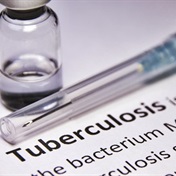At least 6% of people diagnosed with tuberculosis in Khayelitsha last year had a drug-resistant strain of the disease, Médicines Sans Frontières (MSF) said on Monday in a report on a pilot treatment programme in the township.
The health care NGO said its studies suggested that the true figure could be double that, making it one of the highest incidences of drug-resistant tuberculosis (DR-TB) in the world. According to the report, 196 of the 6 000 people diagnosed with tuberculosis in Khayelitsha last year, had the drug-resistant strain of the disease, and of those, three-quarters were also HIV-positive.
However, if all residents of the township in the Western Cape, with its population of half a million people, were regularly tested, nearly 400 people a year would be diagnosed with drug-resistant TB, MSF said. "This would give an incidence of DR-TB of around 60 per 100 000 people each year - one of the highest rates of DR-TB in the world," it said.
Treating TB without hospitalisation
MSF, the Cape Town city council and provincial authorities launched a joint pilot project in 2007 aimed at treating tuberculosis without hospitalising patients for long periods.
The current treatment programme for drug-resistant TB patients employed by government involves the incarceration of patients into TB hospitals. "Patients often spend at least six months in congregate wards. As these centres are often far from patients' homes, they are usually cut off from their families and livelihoods and feel abandoned."
MSF said in eight of the country's nine provinces, patients had to contend with a waiting list at hospitals, and because of the difficulties of being isolated for treatment, up to a third never completed their treatment.
With the current treatment process patients are often discouraged to be tested, or complete their treatment. For this reason, the pilot project was developed to be more accommodating towards patients.
"We are convinced that more patients will be diagnosed and successfully treated if they are supported to follow treatment in their homes, communities, rather than being isolated in specialised hospitals," said Dr Virginia Azevedo, Khayelitsha sub-district manager for the City of Cape Town health department.
The project focuses intensively on counselling, education, and support to patients and their families to empower them to understand the disease, observe infection, control measures, and take responsibility for their treatment.
High incidence of HIV in townships
MSF's medical co-ordinator for South Africa, Eric Goemare, said most treatment models for fighting drug-resistant tuberculosis were developed in eastern Europe and were not tailor-made for the townships, partly because of the high incidence of HIV there.
The Khayelitsha project was therefore largely based on anti-retroviral programmes in community clinics, and aimed to make sure that people who had both HIV and TB got treatment for both.
It also sought to ensure that tuberculosis victims were diagnosed early, got the medication they needed, were monitored so that they could take it at home and felt motivated to take it for the required two years.
Still an uphill battle
But Goemare said despite some success, it remained "an uphill battle" to detect and treat cases as early as possible, and help patients cope with side-effects of TB treatment.
"In addition to new models of care... we urgently need better rapid diagnostic tools to detect DR-TB earlier, and less toxic, better tolerated, and more affordable drugs to treat patients."
He said MSF's research in Khayelitsha had shown that most cases of DR-TB transmission occurred before the patient had been diagnosed or had begun treatment.
Goemare said his group was trying to inform the community on how to avoid infection in specific settings, including clinics, and at the same time debunk the myth that DR-TB was a killer disease with no cure.
It was teaching taxi owners to keep windows open and seats clean, and would soon start going to shebeens to tell clients how to reduce the risk of transmission. – (Health24/Sapa, March 2009)
Read more:
Drug-resistant TB at record high
Extent of tough TB unknown




 Publications
Publications
 Partners
Partners














